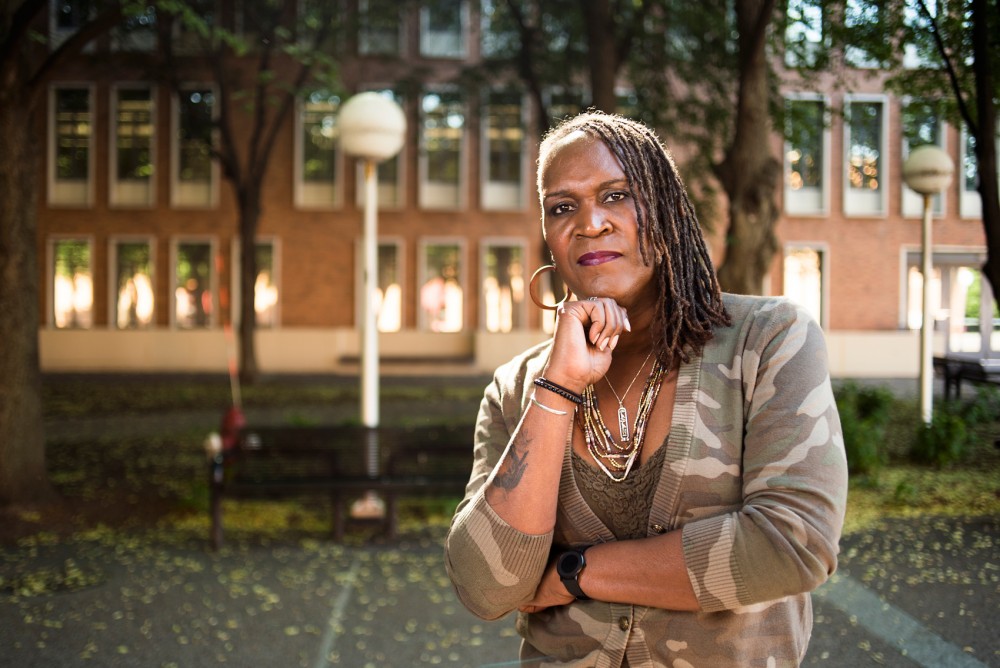A few years ago, University of Minnesota librarian Lisa Vecoli noticed that her collection lacked stories from transgender and gender-nonconforming people.
“We have much more content about cis-gendered gay, white men than we have … about lesbians, people of color, the transgender community and the bi, pan, fluid, omni-plus communities,” said Vecoli, curator of the Jean-Nickolaus Tretter Collection in Gay, Lesbian, Bisexual and Transgender studies.
She designed the Transgender Oral History Project. Led by poet, activist and University assistant librarian, Andrea Jenkins, the project launched in 2015 and documents the personal stories of gender-nonconforming and transgender individuals in the Midwest.
The first set of interviews has now been published and nearly 200 more will be available by the end of next year.
So far, Jenkins has collected 130 interviews, 13 of which have been published. Participants say the project, on track to be completed next year, is an important step in archiving the histories of marginalized communities.
“[These are] people that have been disaffected and abused … and relegated to the margins of our society,” Jenkins said. “We want to document and make sure that we are preserving those voices.”
Jenkins relies primarily on her own network to find interviewees, she said, and also recruits people at her public speaking events.
By early 2018, Jenkins will have collected between 200 and 300 interviews, or up to 400 hours of footage, Vecoli said.
Once the interviews are transcribed and posted online, an exhibit designer will work with the University to create an online exhibit featuring curated components of the project, she said.
“Someone who’s doing really intensive research may watch dozens of hours or read dozens of transcripts, but most people aren’t going to do that,” Vecoli said. “The last part of the project is to try to turn this vast amount of content into something that is much more manageable and much more accessible.”
The project has been an educational experience for all involved. Jenkins said conducting interviews has confirmed her belief that gender awareness, expression and fluidity will dominate U.S. culture in the near future.
“How do we move beyond these stereotypical notions around gender-based life and become more fluid and more fully integrated within ourselves as human beings?” she said. “That could potentially lead to greater equity, greater equality and greater appreciation for all of our … identities.”
The published interviews, each about an hour long, feature the stories of transgender and gender non-conforming people.
“It was actually pretty amazing and moving, not just because of me as an individual gender-nonconforming person, but really thinking about the voices of transgender and gender-nonconforming people who are often on the margins,” said interviewee Nasreen Mohamed.
Jenkins interviewed Mohamed, director of the University’s Student Engagement for International Student and Scholar Services — whose interview is not yet online — last summer.
Preserving the stories of average members of the LGBT community, not just outspoken or charismatic leaders, is especially important, he said.
“These are people who are living their lives as honestly and as authentically as can be in the face of incredible threats of violence,” Mohamed said. “It really gives you an account of this moment in history.”








